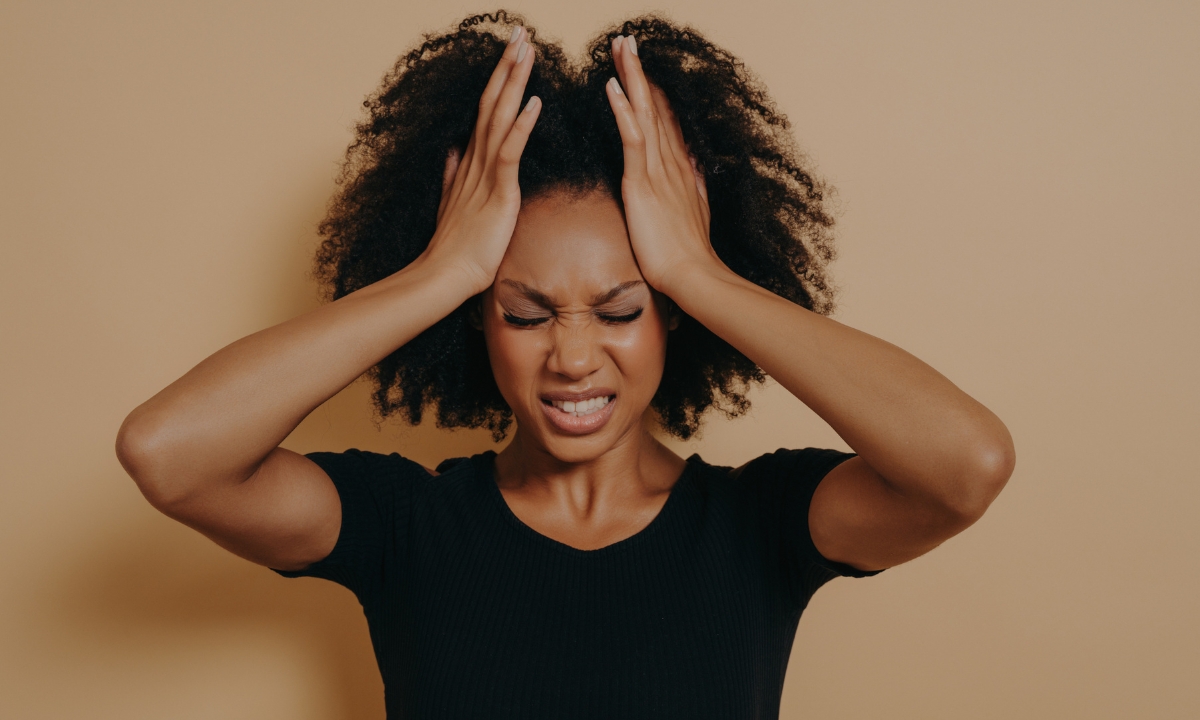The mind and body are intricately connected. While we often think of them as separate entities, emotional stress can manifest in very real physical ways. And one of the most common consequences of chronic stress is the experience of physical pain. As such, it’s vital to understand the connection between emotional stress and physical pain.
Much research and study has allowed us to understand the complex relationship between stress and pain. By exploring how emotional distress can contribute to physical discomfort and dysfunction we can take steps to mitigate them. In addition, understanding how certain physical therapy techniques can address both the physical and psychological aspects of pain can lead to a holistic approach to healing.

Understanding the Stress-Pain Cycle
Stress is a natural response to challenging situations.
When we encounter a threat or perceive danger, our bodies release hormones like cortisol and adrenaline. This “fight-or-flight” response prepares us for action, increasing heart rate, blood pressure, and muscle tension. While this is helpful in immediate situations, chronic stress keeps the body in a constant state of high alert. And this can have a number of negative physical consequences, one of the most common being pain.
How common is stress in the United States?
The American Institute of Stress (AIS) has found that stress causes 57 percent of US respondents to feel paralyzed. 63 precent of US workers are ready to quit their job to avoid work-related stress. Chronic stress is commonplace at work with 94 percent of workers reporting feeling stress at work.
And all this stress is often directly related to much of the pain we suffer from.
According to WebMD, 75 to 90 percent of doctor’s office visits are for stress-related issues. Stress can contribute to a number of health issues, including headaches, high blood pressure, heart problems, diabetes, skin conditions, asthma, arthritis, depression, and anxiety.
Here’s a brief look at how emotional stress and physical pain are intertwined:
- Increased Muscle Tension: Chronic stress can lead to chronic muscle tension, particularly in the shoulders, neck, and back. This tension can create trigger points, which are hypersensitive areas in the muscles that can cause referred pain to other parts of the body.
- Heightened Pain Sensitivity: Stress can make us more sensitive to pain. When stressed, the body releases inflammatory chemicals that can irritate nerves and amplify pain signals.
- Disrupted Sleep: Chronic stress often leads to difficulty sleeping. Inadequate sleep can exacerbate pain and hinder the body’s natural healing processes.
- Changes in Behavior: Stress can lead to unhealthy behaviors like poor posture, overeating, or lack of exercise. These behaviors can further contribute to pain and inflammation.
Stress and pain are like unwelcome roommates, constantly influencing each other. When we experience stress, our bodies release hormones like cortisol, which can heighten pain sensitivity and increase muscle tension. This tension can create tight spots and trigger points, leading to referred pain in other areas.
Conversely, chronic pain itself can be incredibly stressful. It can disrupt sleep, limit daily activities, and lead to feelings of anxiety and frustration. This emotional distress can worsen the perception of pain, creating a vicious cycle. By addressing both stress and pain through techniques like physical therapy and relaxation methods, we can interrupt this cycle and promote healing on both physical and mental levels.
The Psychological Impact of Pain
Pain is not just a physical sensation; it has a significant psychological impact as well. Chronic pain can lead to anxiety, depression, and feelings of helplessness. This can create a vicious cycle, where emotional distress worsens the perception of pain, and pain in turn intensifies feelings of anxiety and depression.
Studies reveal a strong correlation between chronic pain and mental health struggles. According to the American Psychological Association (APA), 35-45 percent of people with chronic pain experience depression, compared to only 16 percent in the general population. Similarly, research suggests a link between pain and anxiety disorders.
Chronic pain can significantly disrupt daily life, leading to feelings of helplessness, isolation, and frustration. This negative emotional cycle can worsen pain perception, creating a complex challenge. Fortunately, addressing both the physical and psychological aspects of pain through a holistic approach can lead to significant improvement in overall well-being.
Holistic Healing: Addressing the Mind-Body Connection
It is critical to understand both the mind-body connection and a holistic approach to pain management. Quality physical therapists don’t just focus on the physical aspects of pain; they also address the psychological factors that may be contributing to your discomfort.
Here’s some of the therapy techniques that can help with both physical and emotional aspects of pain:
- Manual Therapy Techniques: Techniques like massage therapy and myofascial release can help to reduce muscle tension, improve circulation, and alleviate pain.
- Movement Therapy: Customized exercises can improve flexibility, strength, and range of motion, reducing pain and promoting a sense of control over your body.
- Relaxation Techniques: We can teach relaxation techniques like deep breathing and meditation to help manage stress and improve sleep quality. This can decrease pain perception and promote overall well-being.
- Cognitive Behavioral Therapy (CBT) Techniques: Physical therapists can incorporate CBT principles to help you identify and challenge negative thought patterns that may be amplifying your pain experience.
Breaking the Cycle: Managing Stress for Pain Relief
In addition to the techniques offered in physical therapy, there are steps you can take at home to manage stress and alleviate pain:
- Regular Exercise: Physical activity is a powerful stress reliever and can also improve pain tolerance. Aim for at least 30 minutes of moderate intensity exercise most days of the week.
- Mindfulness and Meditation: Practicing mindfulness or meditation can help you become more aware of your thoughts and feelings, allowing you to manage stress and cope better with pain.
- Healthy Sleep Habits: Prioritize good sleep hygiene to ensure restful sleep. This includes establishing a regular sleep schedule, creating a relaxing bedtime routine, and avoiding screens before bed.
- Social Support: Strong social connections can buffer the negative effects of stress. Connect with loved ones, engage in supportive activities, or consider joining a support group for people with chronic pain.
Stress and Physical Pain and Attaining Relief
By understanding the connection between stress and pain, you can take a more comprehensive approach to managing your discomfort. The team at Pain and Performance Solutions is committed to providing a holistic approach to pain management through evidence-based physical therapy techniques that address both the physical and psychological aspects of pain.
Don’t hesitate to reach out to us for a personalized evaluation and treatment plan that can help you break the stress-pain cycle and achieve lasting relief.

Pain and Performance Solutions Wants to Partner with You to Beat Stress and Physical Pain
Regardless of whether you’ve been experiencing muscle pain for a brief period of time or you’ve been suffering ongoing pain for months or longer, we invite you to give us a call. Achieving relief from muscle or joint pain begins once we’ve gained an in-depth understanding of when and how your pain began.
At Pain and Performance Solutions we specialize in bringing relief from chronic muscle pain with therapies such as Active Release Techniques® (ART®) and Anatomy in Motion (AiM). So, don’t simply ignore your pain and hope it will just go away. Let us help.
Contact us today at 707-636-4404 or book an appointment online to start your recovery process.
